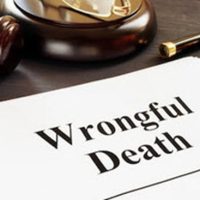What Is A Florida Survival Action?

When a person dies due to the alleged negligence of another person, the victim’s surviving family may choose to file a lawsuit for wrongful death, seeking damages for things like pain and suffering. However, the person’s estate may choose to file another type of suit, referred to as a survival action. Both types of suit may be viable in this type of situation, but a survival action is brought by the estate, seeking different types of damages than a wrongful death suit seeks for the surviving family.
Different Damages Sought By Different People
In Florida, a wrongful death lawsuit is essentially for the benefit of the deceased person’s surviving family, and seeks to recover damages that the family has suffered – for example, medical and funeral expenses, loss of future earnings, or loss of support and services. A survival action is brought by the personal representative of the decedent’s probate estate, specifically seeking recovery for damages that the person could have recovered had they lived. Essentially, the types of lawsuits differ in whose damages are being recovered – the family’s, or the individual’s.
It can seem counterintuitive for the estate to be able to recover damages in a survival action – after all, the person is deceased, and cannot benefit from the award. However, it is seen as equitable (fair) to allow the case to move forward, even if the decedent is not present to benefit. Florida law holds explicitly that “no cause of action dies with the person.” If a living person is involved in an accident, sues and prevails in court, they are entitled to receive damages; the law figures that there is no reason to deny this to someone who happened to lose their life in the accident.
You Must Pick One
One thing that many families are unaware of is that under Florida law, the election of remedies doctrine requires that only one lawsuit – a wrongful death suit, or a survival action – can be seen through to its conclusion. The election of remedies doctrine essentially holds that no party can recover multiple times out of the same incident – and if a family and an estate could both bring suit over the same fatal accident, it would constitute an unfair windfall.
That said, the choice does not have to be made until the jury verdict has been issued. Florida’s Rules of Civil Procedure allow what is known as “relief in the alternative” to be pleaded – essentially, two potentially opposing causes of action can both be argued in the courts, but only one of them can be entered into the record. So, at least in theory, a suit could be brought in court seeking both damages for the estate and for the surviving family – but after the verdict of liability is reached, the parties must choose which claim (and set of damages) will be the “official” one.
Contact A Tampa Wrongful Death Attorney
In the immediate aftermath of losing someone, filing suit may be the last thing on your mind. However, a personal representative of the estate has the right to seek damages for what the deceased might have attained had they made it through. If you are unsure as to how to proceed after the death of a loved one, contacting a Tampa wrongful death attorney from the Rinaldo Law Group may provide some direction at a frightening time for you and yours. Call our offices today at (813) 831-9999 for a free consultation.
Resource:
leg.state.fl.us/Statutes/index.cfm?App_mode=Display_Statute&URL=0000-0099/0046/Sections/0046.021.html












